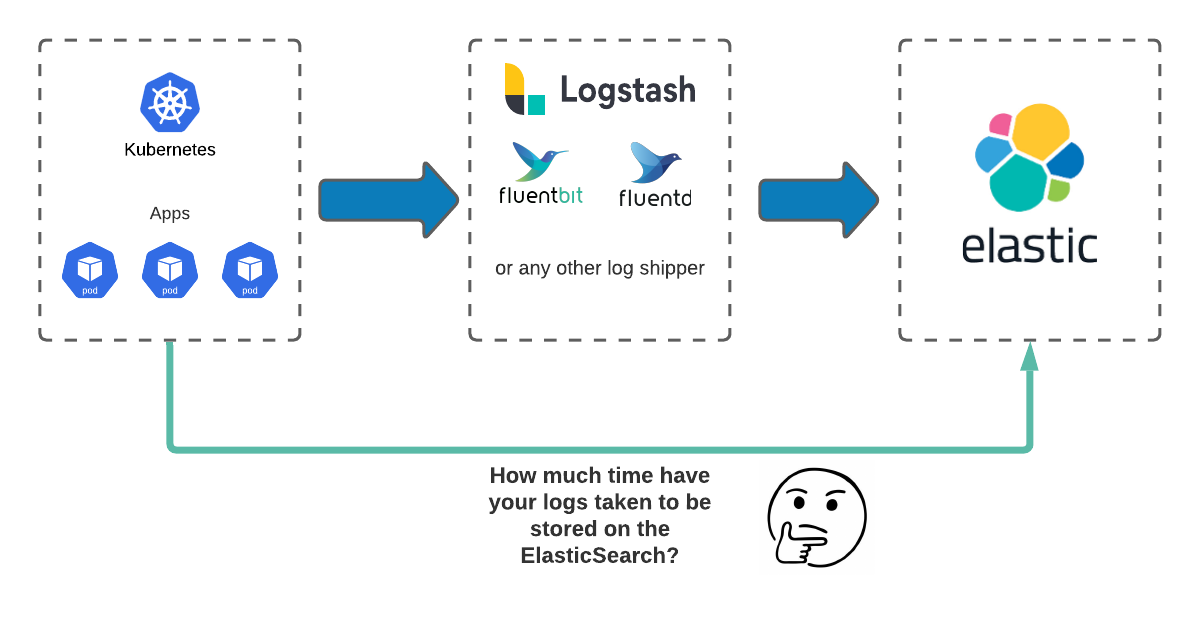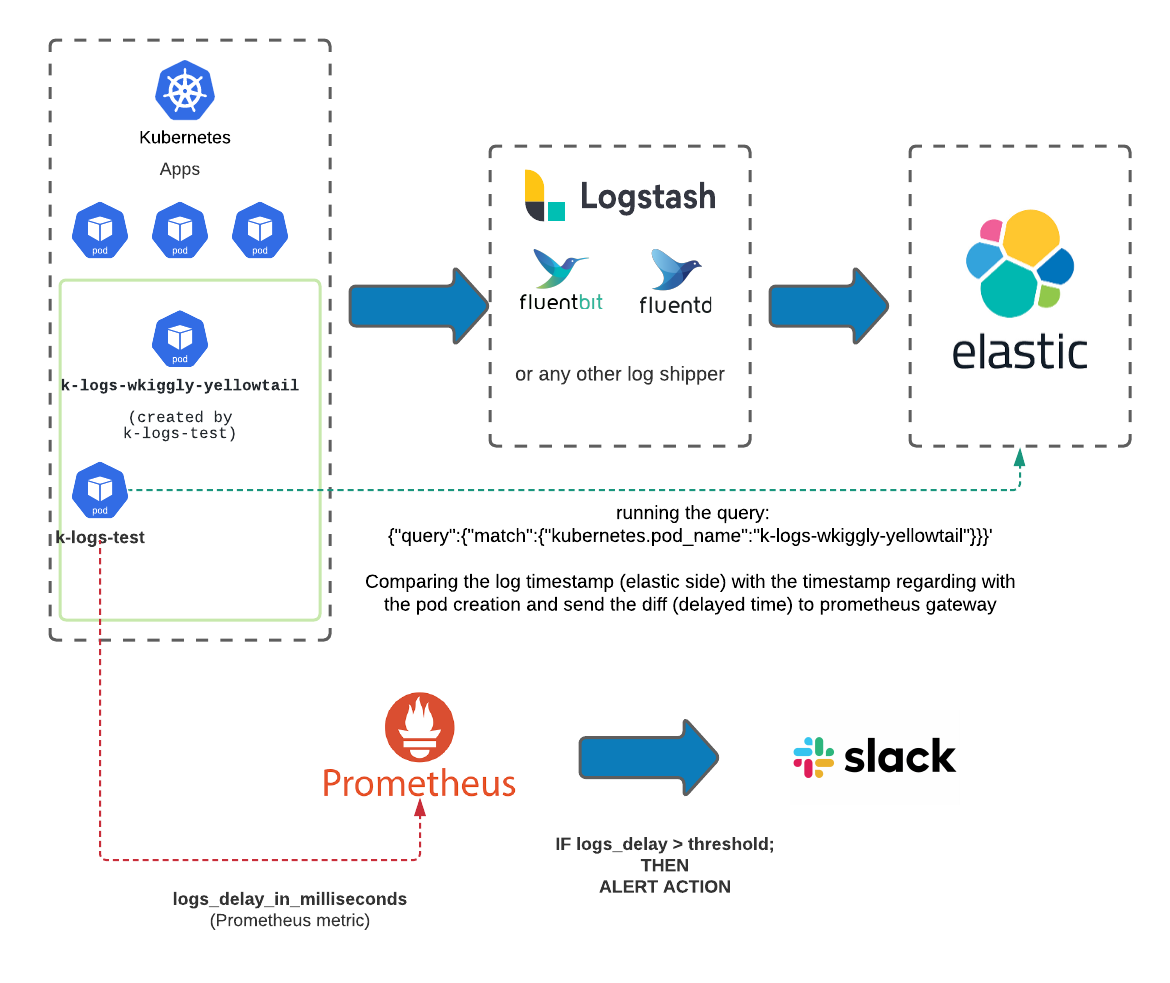K-logs-test helps you to be sure that your applications logs are getting into their destination (ElasticSearch) in a expected period of time.
In case the logs are taking more time than your team accept, k-logs-test will identify the problem and notify you. Also you can use the metrics exposed by the Prometheus Gateway.
k-logs-test will create a pod in your kubernetes in a namespace you've defined.
Example:
k-logs-test run -p tatata -e http://localhost:9200/test_logs --logs-hits 4 --threshold 3 --channel "#k-logs" --webhook-url https://hooks.slack.com/services/XXXX/XXXX/XXXXX --slack-alert-enabled true
k-logs-test run --help
Usage:
k-logs-test run [flags]
Flags:
-c, --channel string The Slack Channel for notification (default "#k-logs")
-e, --elastic-endpoint string The ElasticSearch Endpoint and the logs index name (default "https://localhost:9200/fluentd")
-h, --help Help option
--logs-hits int The number of logs hits (default 30)
-n, --namespace string The pod namespace (default "default")
-p, --pod-name string The pod name (default "k-logs-test")
-a, --slack-alert-enabled Enable or Disable Slack Alerts
--threshold int The Alert Threshould in milliseconds
-w, --webhook-url string The Slack Webhook Url for notification
--prom-enabled bool Enable or Disable Prometheus metric (default "false")
--prom-endpoint string The prometheus gateway addr
Global Flags:
--config string config file (default is $HOME/.k-logs-test.yaml)
Alternatively, we can just export these env-vars:
export K_LOGS_LOGS_HITS=30
export K_LOGS_CHANNEL="#k-logs"
export K_LOGS_ELASTIC_ENDPOINT="https://localhost:9200/fluentd"
export K_LOGS_NAMESPACE="monitoring"
export K_LOGS_POD_NAME="test-logs"
export K_LOGS_SLACK_ALERT_ENABLED="true"
export K_LOGS_THRESHOLD="2000"
export K_LOGS_WEBHOOK_URL="https://hooks.slack.com/services/XXXXXXX/YYYYYY/WWWWW"
export K_LOGS_PROM_ENABLED="true"
export K_LOGS_PROM_ENDPOINT="localhost"
And run the k-logs-test run without declaring any flags.
k-logs-test run
WIP

